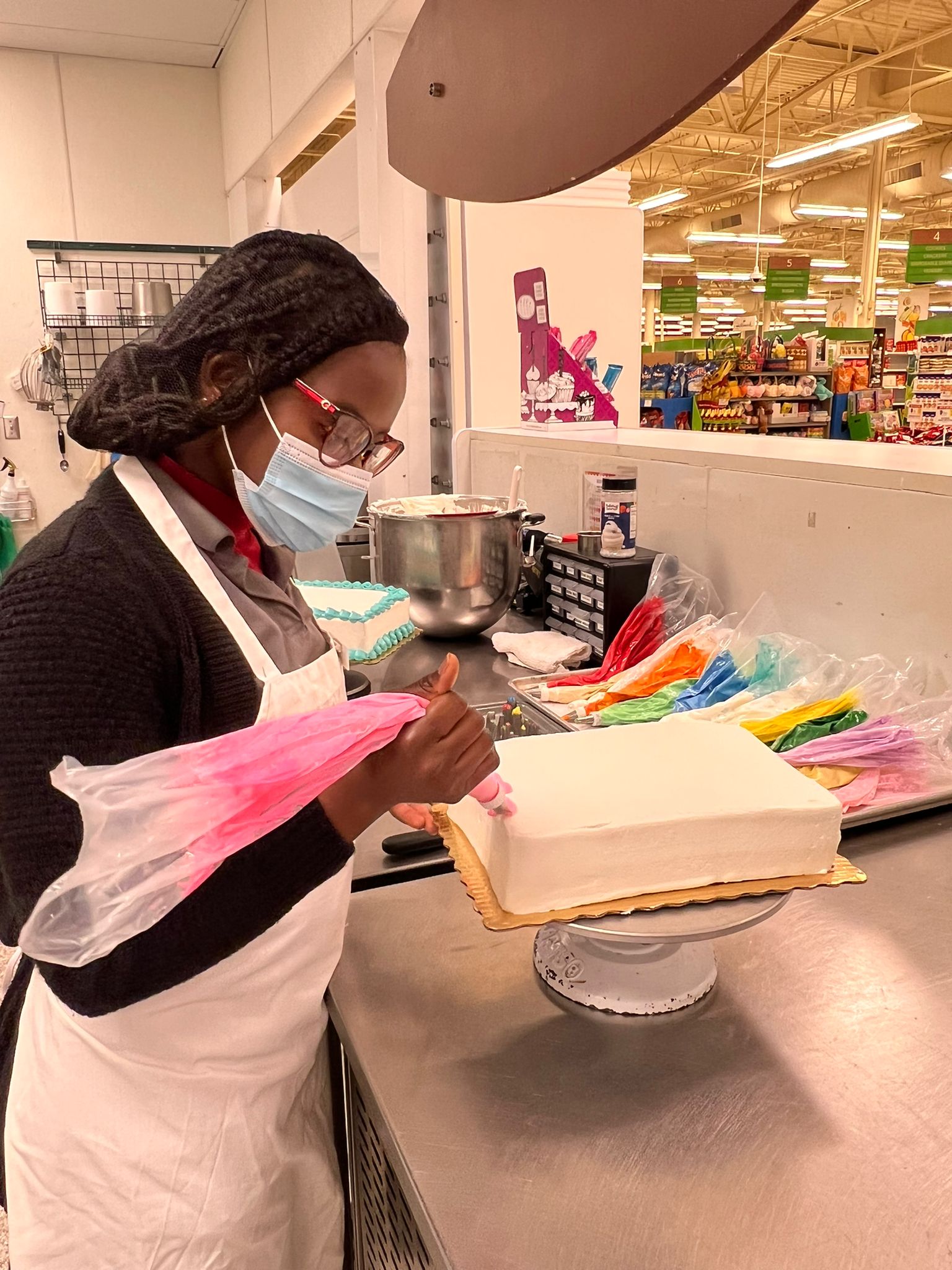Challenges in Life Are Just Opportunities to Grow: Wideline Joseph
May 2022
Wideline Joseph is no stranger to challenges along life’s pathway. Her biggest one arrived seemingly out of nowhere following a very high fever. At the time, Wideline (pronounced “Whittle-in”) was 14 years old and living in her homeland of Haiti. When the fever finally broke, she was left with almost no hearing and very little vision.
Despite this huge and life changing event, Wideline was determined not to let her sudden deafblindness hold her back, choosing instead to “work hard and find a way through it.” Throughout her life, she has lived by this motto, avoiding focusing on the negatives that came her way. Obstacles in life, such as the loss of her vision and hearing, she says, are just “opportunities to grow.”
Shortly after becoming deafblind, Wideline began learning to use touch, read lips, and communicate with her family, who spoke Haitian Creole, a mixture of French and African languages. When her family moved to Florida two years later, she had to learn not one but two new languages—English and American Sign Language (ASL). She was first enrolled in middle school in a regular education classroom. Luckily, her teacher knew French, and was able to translate, so Wideline gradually learned English words. When she transferred to a deaf and hard of hearing class, she learned ASL.
Although she had learned two new languages and moved to a new country during her high school years, Wideline yearned to be even more independent and successful. She began by taking advantage of a wide variety of supports offered by the Florida state deafblind project and other disability organizations to help her plan and prepare for the transition to adult life. “I started seeing so many deafblind people that were successful, that had a job,” she says. This, along with support and encouragement from others motivated her to apply for a job working for the grocery chain Publix.
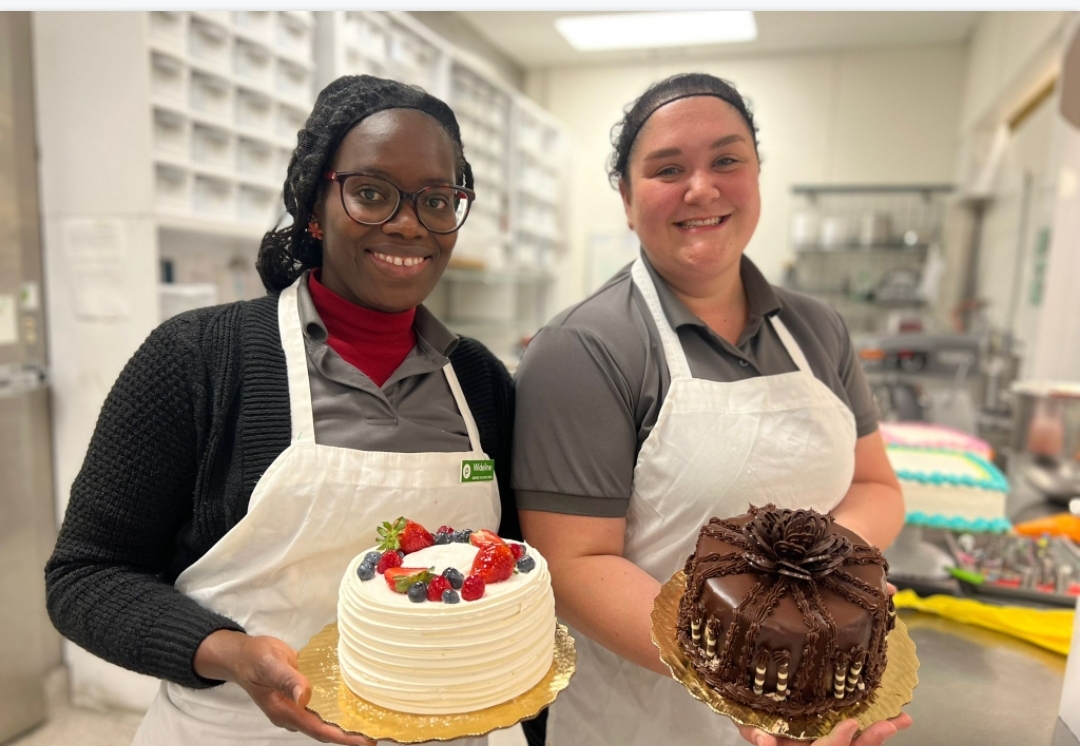
Much to her surprise, she was immediately hired and began training at Publix the same week. Not long after, she began receiving high praise from her supervisors. They were impressed by how well she could read and communicate as well as her strong work ethic.
After graduating from high school, Wideline attended the Art Institute of Fort Lauderdale, graduating with a certificate in Culinary Arts in Baking and Pastry. That training along with her prior work experience, led her back to Publix, where today she is a full-time cake decorator in their bakery.
The Challenge of Communication
Not surprisingly, Wideline’s job requires considerable daily interaction with coworkers, customers, and managers, something that would be challenging for any young adult who is deafblind. What has been the hardest struggle at work, she explains, has been finding ways to make it easier for others to include her in their conversations.
“Customers and my coworkers are all hearing, and most of them don't really know any sign language. It can be awkward. They may have never met a deaf person in their life, and so communication can definitely break down.”
“It’s important to go in with an understanding attitude,” she explains. “I have to be proactive and explain to them how to communicate with me. Sometimes it can take practice and experience to figure each other out and how to best communicate. Like anything else, there are good communicators and not so good ones,” she says with a smile.
Wideline can speak English well; however, she has a very strong accent that can be difficult to understand. She often relies on technology to help make connections with others. For example, if she needs to read something that is printed, such as instructions, she can take a photo of the document on her phone and enlarge it. And, because her work calendar is online, she can access her schedule on her phone. She adds that texting, the WhatsApp app, and Zoom all help her connect with others on the job and keep in touch with family and friends in Haiti.
Wideline has noticed that sometimes in the workplace, those with typical hearing don’t want to write out what they want to say to her. When this happens, she relies on an app called Ava. With Ava, people can talk into her phone and their words are transcribed on the screen. Likewise, she can type her responses so others can read them.
To Wideline, the accessibility provided by her phone and the Ava app has been a lifesaver at work. “Every day, we rely on teamwork. We have to know who's responsible for each part of the day’s work, like how things get done and who’s doing what. We often have special orders, too. We need to collaborate with one another all the time and help each other.”
Despite the initial struggles with communication, the relationships she’s built with her coworkers at Publix have been wonderful, Wideline explains. “We really are working as a team, and we have so much fun together. Everyone is so supportive,” she says.
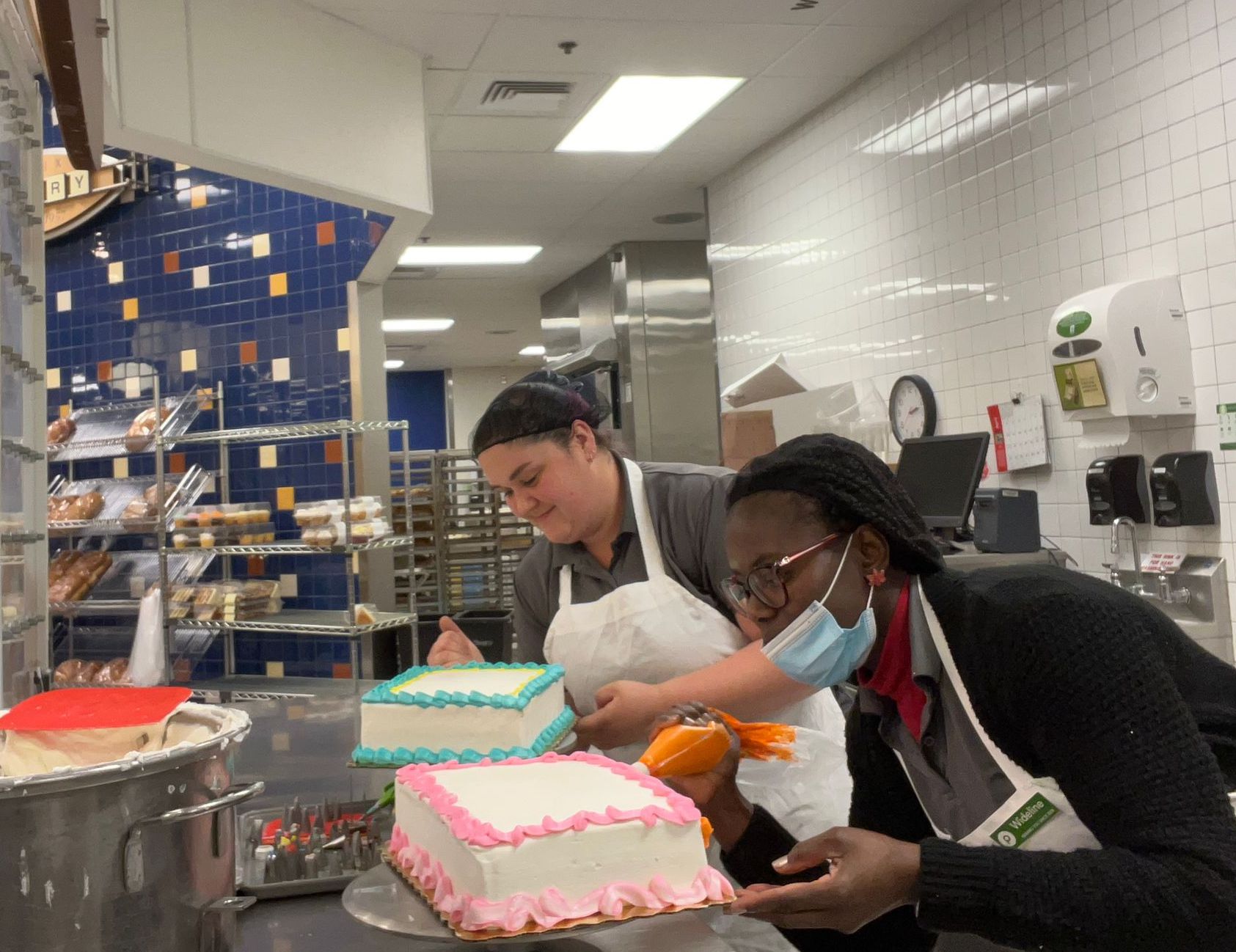
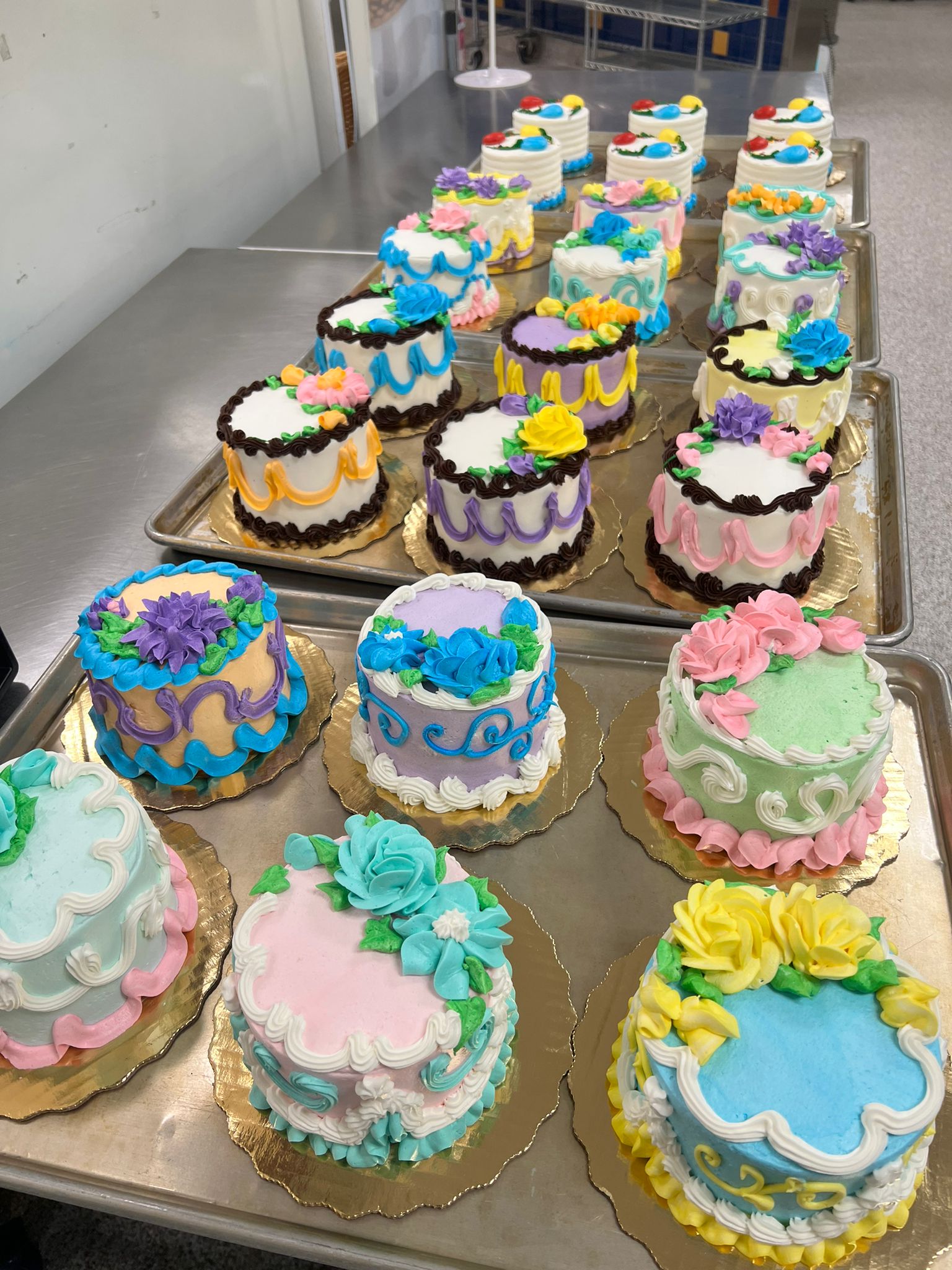
The Impact of COVID-19
Wideline notes that one of the biggest upheavals in her life has been the Covid-19 pandemic. “I’ve never faced anything like that, but I’ve looked at it as just a big challenge and a chance to learn new things.”
“It’s definitely been a struggle ever since Covid began, to wear masks and try to interact with customers,” she explains. “I can read lips pretty well so the masks have definitely been a huge obstacle to communication,” she says.
“I have to be very upfront with customers, “Wideline explains. “I say, ‘I’m sorry, I’m deaf. Here’s a piece of paper–can you write out what you would like?’ Sometimes one of my co-workers, if they see I’m having trouble, will come over and help me communicate with the customer. They’re just wonderful about that,” she adds. And if no one is around to help, she relies on technology to enable the conversation.
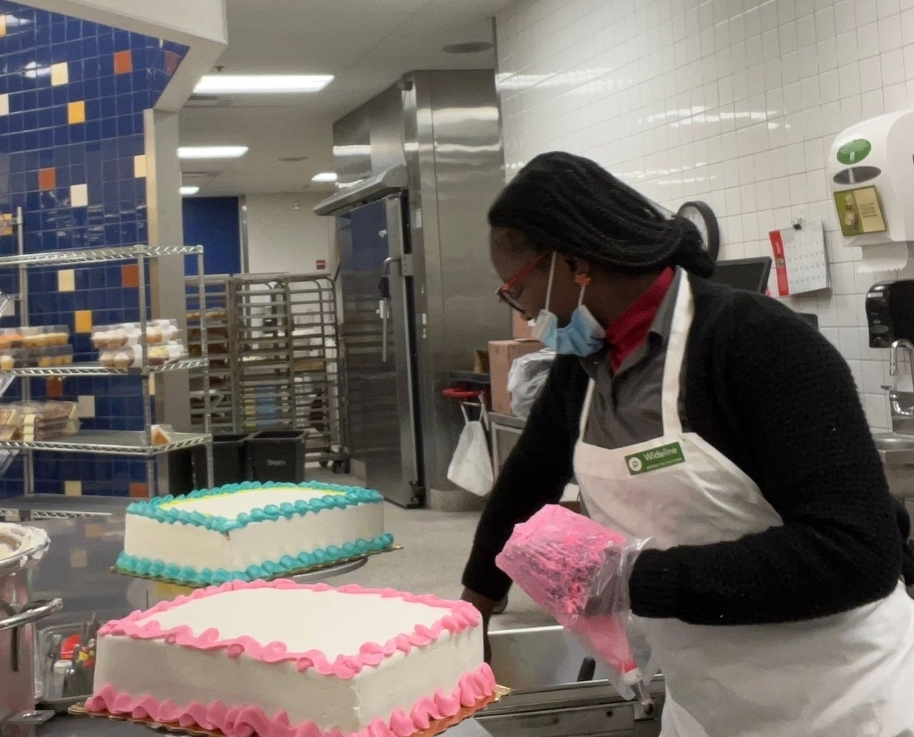
Advice for Young Adults with Deafblindness
All told, Wideline has worked at Publix for almost 13 years–the last five of those years full time. Today, she is a strong, independent, and resourceful young woman. Rather than dwell on the challenges that have come her way, she has embraced them as opportunities to grow.
“Sometimes we have challenges we just need to face even if we're frustrated that day, even if we have other things on our plate,” explains Wideline. “There always will be obstacles for those who are deafblind, but you have to find a way through it.”
“I think many people who are deafblind feel like they have inadequate access to things, and they are stuck. I would say, ‘show the world that you can! Be willing to do that, to have that eagerness and try to learn something new. If you never try, you never know what you could become.’”
Wideline encourages other young adults who are deafblind and transitioning to independence and the workplace to look to others for help. “There’s also a lot of support out there,” she says, “so don't be afraid to ask for help and listen to what they have to say…give it a think. Just open your mind, be ready to learn, and take that step. That’s what has led me to success.”
